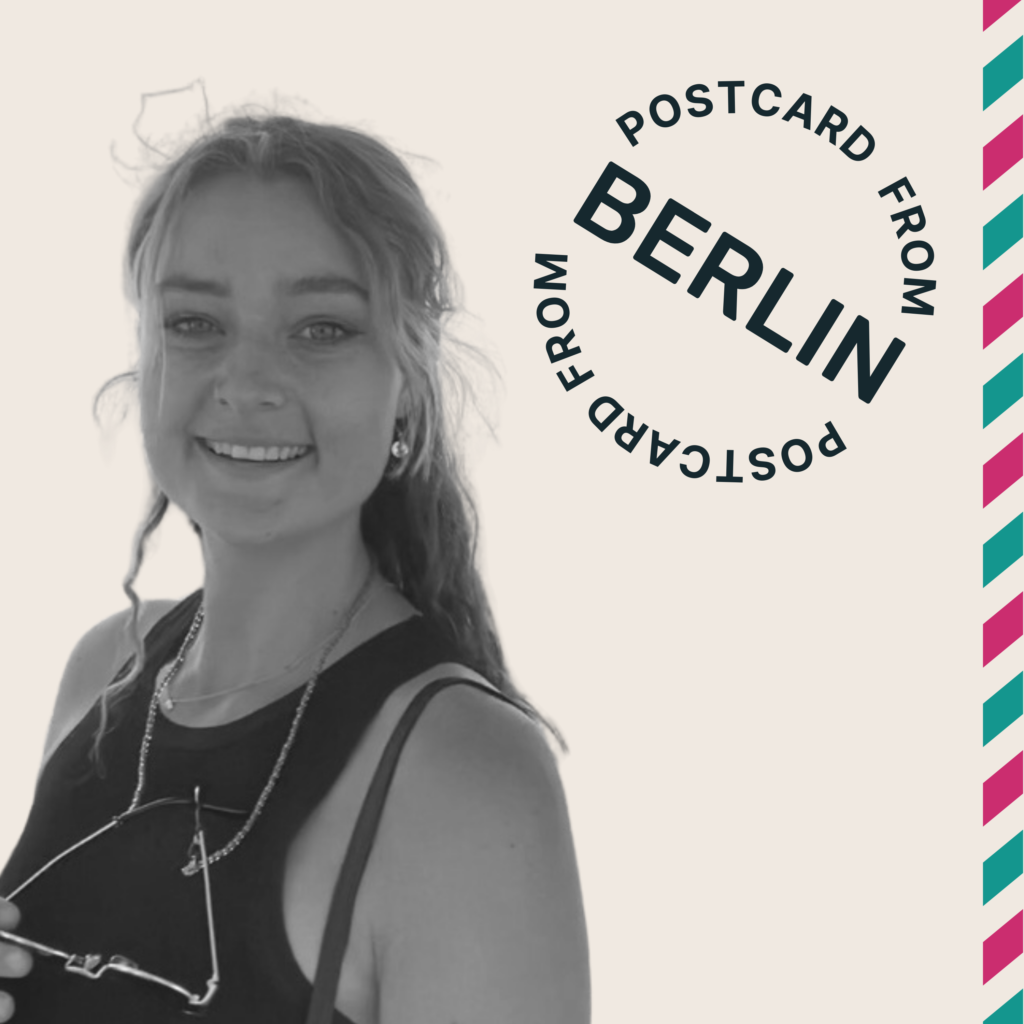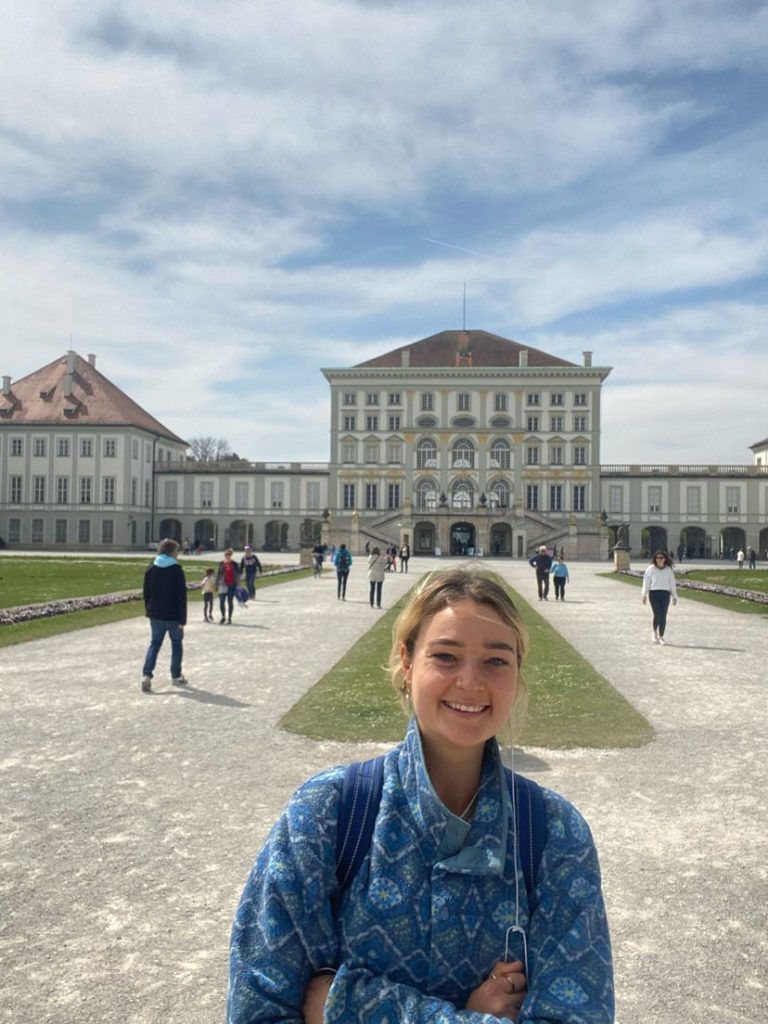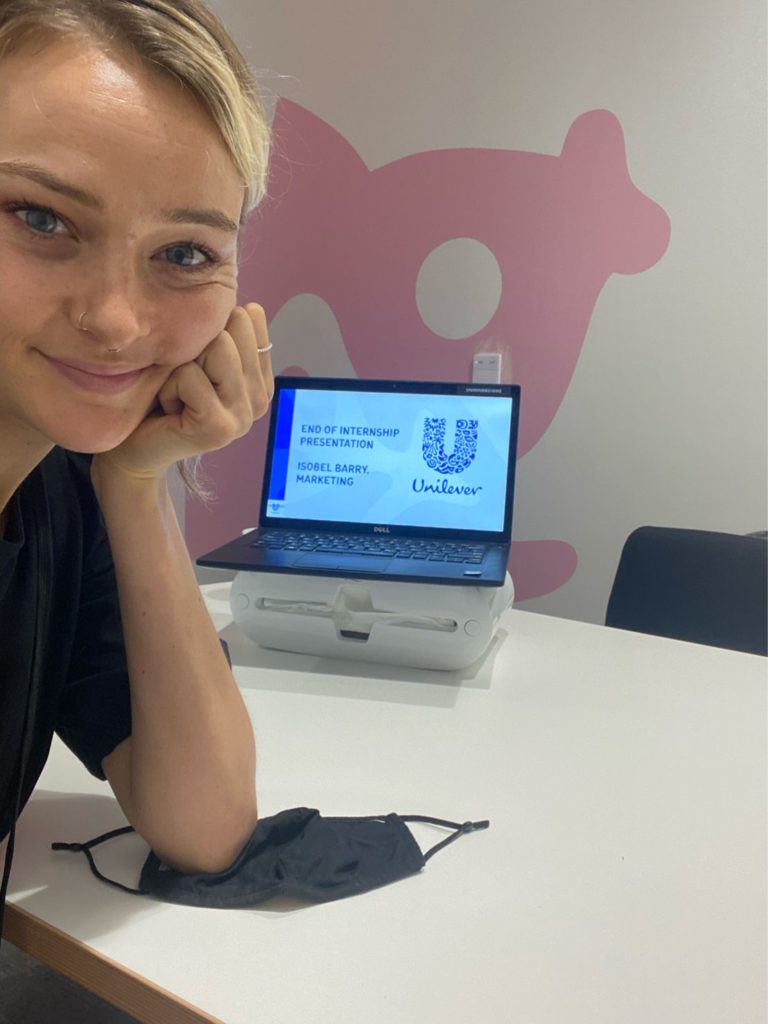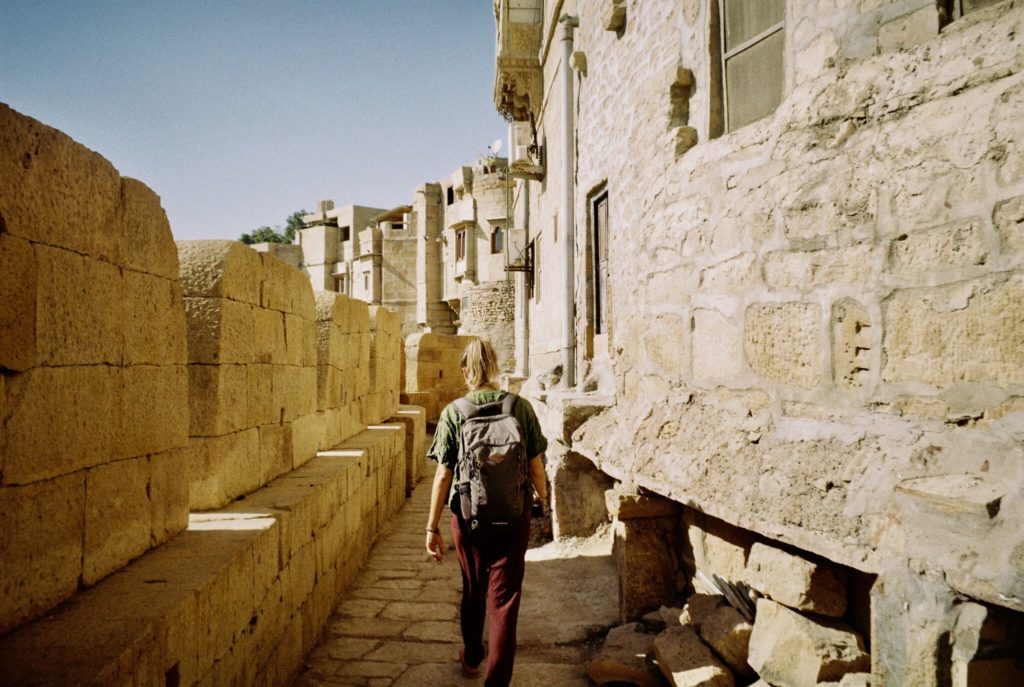Isobel Barry was a part of our Feb 2022 Nextgen program. She is now a Business Development Manager based in Berlin.
Please tell us a little bit about yourself, where your home is in Australia, and where you now call home.

Hallo from Berlin! I am a Business Development Manager based in Germany with a passion for marketing, sustainability, and all things international. Growing up in Sydney, I always had a strong desire to explore the world and build an international career. With the advantage of having an EU/UK passport through my parents’ birth countries, it made it easier for me to pursue opportunities abroad. After some persistent job applications and a stroke of luck, I found myself in Berlin. It has been an eye-opening experience navigating business functions in a dynamic work environment.
I studied a Business/Arts double degree at Monash University, majoring in Marketing, International Studies, and Spanish. Prior to relocating to Berlin, I was completing a university exchange in Tilburg, Netherlands. During my time there, I had the chance to join the university’s society, volunteer with their organisational committee, and work as a Yes Trips Guide. While on the exchange, I had the privilege of leading a trip to the Czech Republic and to travel independently to neighbouring countries. Australia is incredible, and I do miss it a lot, but the ease of mobility in Europe is unmatched. It’s one of the reasons why I chose Berlin as my settling place for a while.

What led you to move overseas, and what advice would you give for those following in your path?
As a first-generation Australian, my siblings and I were fortunate to be exposed to travel from a young age. Over the years, we visited my grandparents in Ireland and the UK, and explored various countries along the way. Although I have only faint memories, living in France for two years ignited my desire to one day live there. When the opportunity arose, I applied for a Rotary Youth Exchange with the ambition of learning French. However, as life often takes unexpected turns, my application took a detour, and at the age of 16, I was selected to embark on a year-long exchange to Guanajuato, Mexico.
When I returned to Australia, I completed my final two years of high school. During my time at Sydney Secondary, I took part in their sister school immersion program in Timor-Leste and worked at a Spanish restaurant to save money for future travels. For tertiary education, I intentionally chose Monash University, known for its international focus. I was fortunate to be part of the inaugural cohort of the Global Immersion Guarantee program, which took me to Mumbai, India. At Monash, I also participated in the Global Discovery Program, collaborating with mentors based in New York City, and had the opportunity to intern in marketing at Unilever. Finally, after experiencing three cancelled exchange programs due to the COVID-19 pandemic, I was delighted to be selected to attend Tilburg University in the Netherlands.
As for advice, I would recommend trusting your gut and immersing yourself as much as possible in the new culture. Establish a routine, pursue a couple of hobbies, and strive to learn as much as you can. Personally, I believe in trying everything, being unafraid of failure while hoping for success. Fear of failure is simply ego and can hinder opportunities. However, it’s important to distinguish this from lacking confidence in yourself; having self-belief is crucial. I was also fortunate to be a part of Advance’s NextGen program, which provided me with a wealth of insights into the entire process of moving overseas, finding employment, building a network, and everything in between.
What’s been one of the biggest challenges you’ve had to overcome in making your move?

The biggest challenge was feeling settled and navigating the bureaucracies of new countries — think lots and lots of paperwork. Have you ever heard of a radio tax?! However, I’ve managed to create a nice support network for myself here, and many of my friends are in the same boat. I was quite intentional in finding German housemates, which helps in a myriad of ways. I still remain in contact with people back home, but naturally, my social centre has shifted. While the challenge I was after was the adventure of moving overseas and trying to make an international career for myself, I always appreciate having a connection to home. I think that especially when moving to a non-English speaking country, you have to be prepared to explore new avenues for finding roles and opportunities. While Berlin is very English-friendly, the majority of job opportunities here are in start-ups. Germans generally have excellent English skills, especially in Berlin, so you really need to be confident in your unique selling proposition (USP) as an employee. What value can you bring and what can you offer? Naturally, when two candidates apply for a position and one is a local with additional fluency in English, you will face some challenges. So, whether your strengths lie in copywriting or communication, embrace them and promote your international experience as an asset.
How have you found creating a new network in your new home? Have you still managed to maintain your connections in Australia?
I have established a network of friends and colleagues in Berlin, as well as in the Netherlands. What also helped me was that prior to my exchange, I spent five months backpacking, meeting a few friends based in Berlin along the way. People are generally welcoming to Australians, and it’s somewhat of a German stereotype to take a gap year to Australia, so it’s an easy conversation starter – you should ask your German friends if they also know Lisa. I would suggest stepping out of your comfort zone, attending social events in the city, and inviting people for a coffee. The network naturally forms as a by-product of these experiences. Leaving my friends and family is something I have become somewhat accustomed to due to frequent moves between states and countries. However, I have discovered that we still manage to stay connected despite the challenges of different time zones. There are moments of occasional homesickness, longing for the familiarity and ease of navigation, but I consider it a natural consequence of embracing the identity of a Global Australian.
What are some of the benefits that have come from becoming a Global Australian?

The biggest gain has been the opportunity to broaden my experiences, both culturally and professionally. I now feel more capable, resilient, and adaptable as a result. For starters, I have gained invaluable insights into living and working in Germany. Being immersed in the vibrant startup culture has allowed me to acquire a plethora of new skills and tackle daily challenges head-on. Additionally, my professional network has expanded significantly, giving me a sense of confidence in navigating unfamiliar waters and seizing opportunities without succumbing to the fear of the unknown. But it’s not just about the professional benefits; the entire process of setting up your life, arranging accommodation, building a new social circle, and adapting to a completely unfamiliar environment provides you with a wide range of skills that you would never truly acquire by staying in your comfort zone.